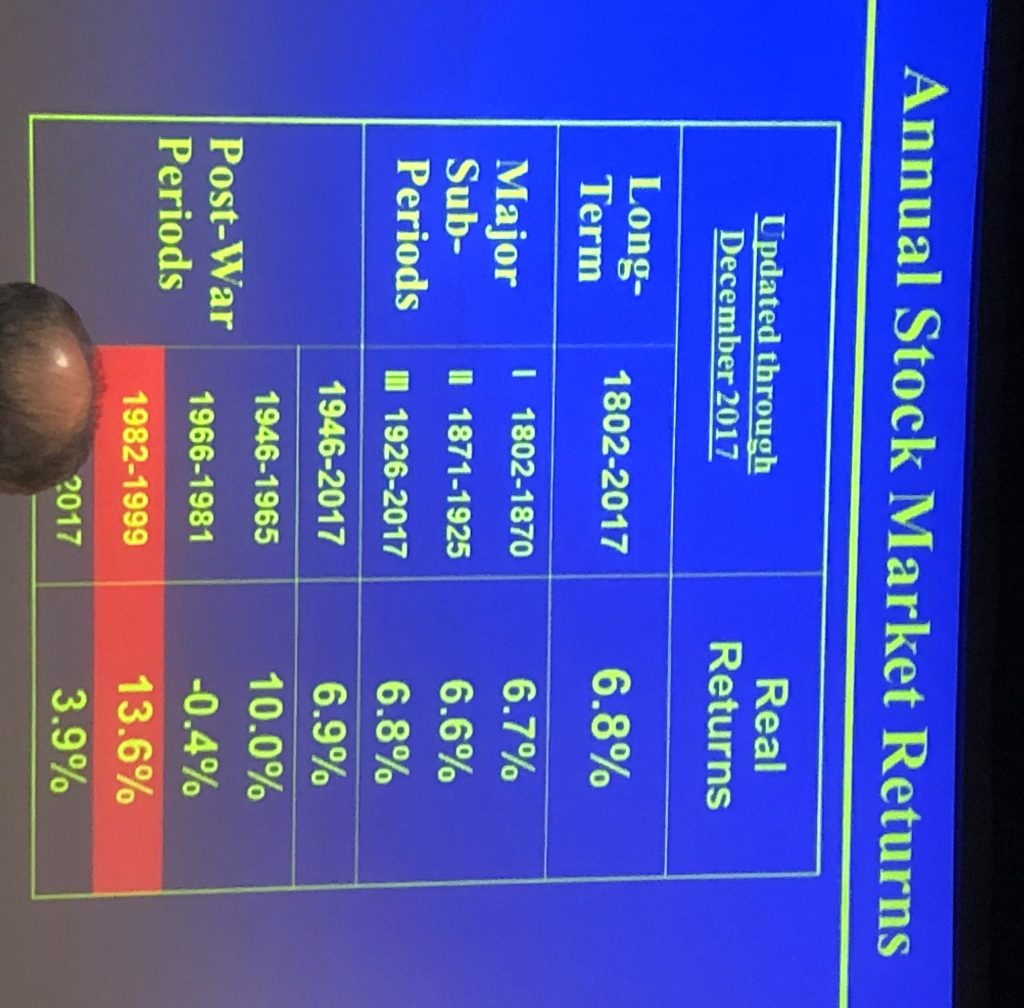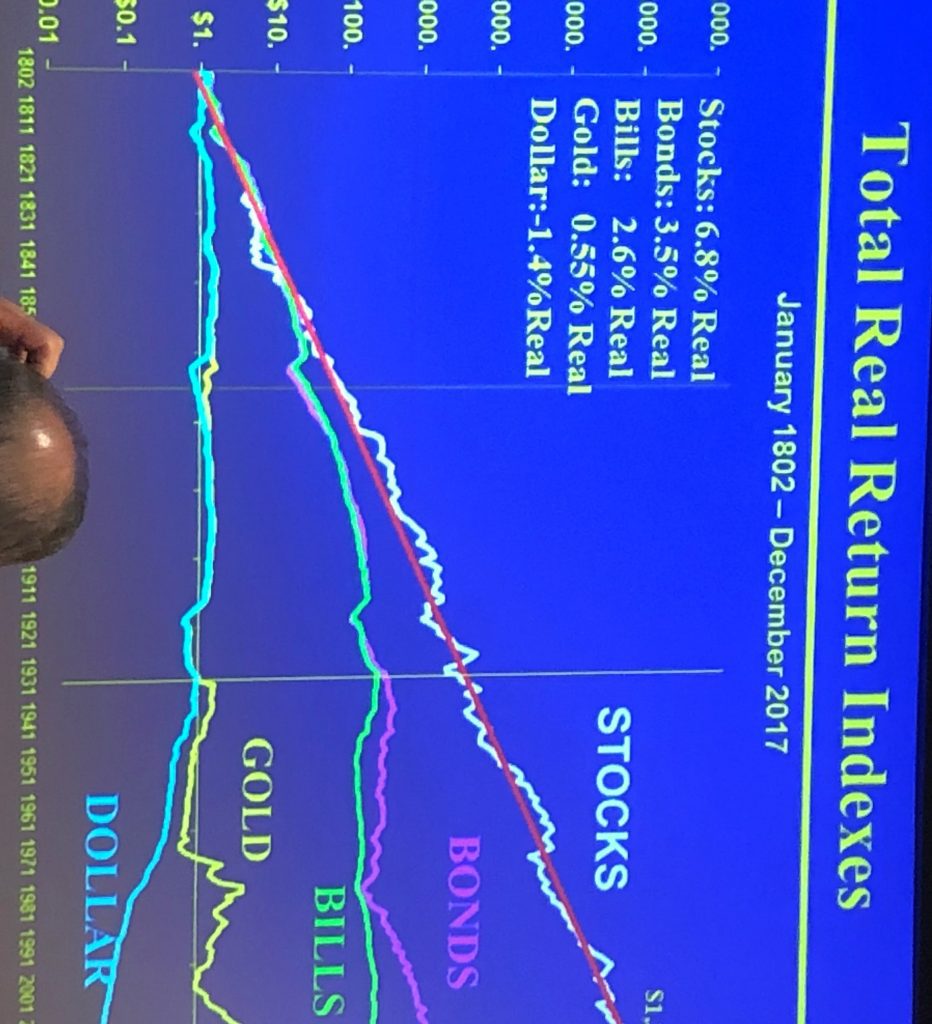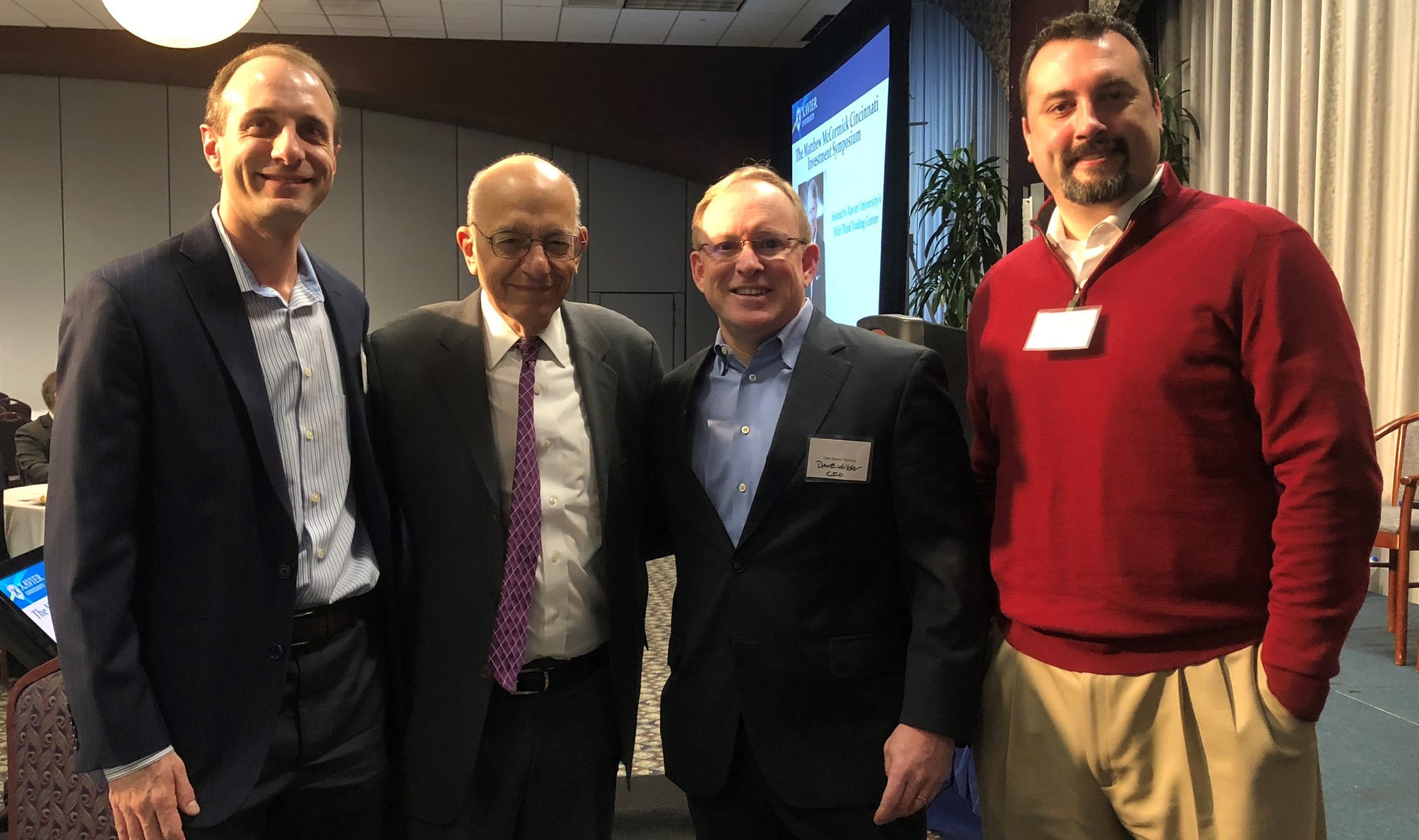Our team was excited to see Professor Jeremy Siegel speak at Xavier University’s McCormick investment symposium late last month.
Jeremy Siegel is a well-respected professor of finance at the Wharton School of the University of Pennsylvania. After earning graduating from Columbia University in 1967, he earned his Ph.D in economics from MIT, with post-doctoral work at Harvard. He writes and lectures extensively about the economy and financial markets. Additionally, he is the author of “stocks for the long run” and recently, “Future for investors”.

He further compared market expectations and valuation metrics in 1999 versus today. The market in 1999 had a P/E of 30 compared with 24 today. Looking closer, today’s market valuation is really at 20, but with some exciting tech stocks at 90 (e.g. FANG stocks). Another big difference with today’s tech stocks are the level of earnings and profits they’re reporting compared to mostly ideas and unproven revenue models of the late 90’s.
He explained a variety of ways to calculate and value earnings, such as GAAP, S&P operating, and firm reported. While there are pros and cons to each, he reassured the group that all methods of calculating earnings show optimism and growth ahead. Based on his method of forecasting expected returns, he forecasts stock returns after inflation (i.e. Real return), otherwise known as the equity risk premium. Today, he sees that expected risk premium at 4.5%. Compare this with 1999 when the expected market return was 3.3%, TIPS (i.e. inflation bonds) were paying 4.5%, and the risk premium was negative. In hindsight, investors were better off in US inflation treasuries than taking market risks. He used his valuation methodology across many countries and found healthy equity risk premiums no matter the country. In fact, he shared his 2018 outlook pointing towards more attractive valuations outside the US. Reflecting on client portfolios, we’ve started to see an uptick in foreign stock returns over their US counterparts.

Total Wealth Planning LLC (“TWP”) is a registered investment advisor with the SEC. Past performance is no guarantee of future results. It is not possible to invest directly in an index.







